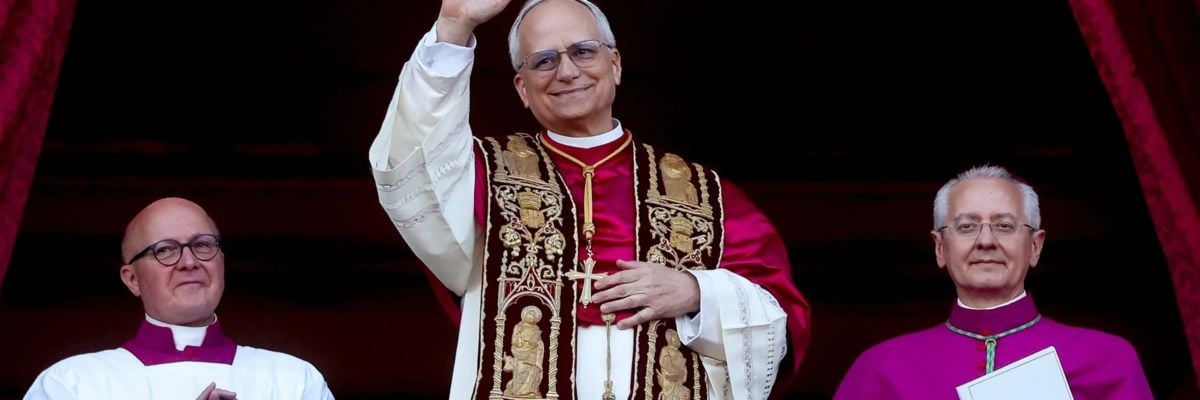
Cy Kellett is joined by Catholic apologist Jimmy Akin to discuss the authority of the Bishop of Rome, particularly in light of Pope Leo XIV. Jimmy clarifies the distinction between “change” and “development” in Church doctrine, emphasizing how Catholics view doctrinal evolution as a continuity rather than a rejection of past teachings.
Transcript:
Caller: Do you see Pope Leo XIV making changes to the doctrine teachings in the near future? Because I know in the Catechism there’s been some changes with Pope Francis and other popes.
Jimmy: Okay, well, first thing I’d say is that many Catholics would not put it in terms of changes. Change can imply, to some, a kind of reversal or rejection of previous teaching. And so many Catholics, rather than use the term change, they use the word development. They talk about doctrine developing rather than changing, which they see as a kind of better term in their opinion, because saying something develops is less radical sounding than saying it changes, and it implies more continuity than reversal or rejection.
Having said that, you know, I don’t have a problem saying change personally, because even a development is a change, but because of the connotations that change can have for people, it’s more typical to describe it as development rather than change. I don’t think there’s a substantive difference here, but I recognize the term change can sometimes have connotations that would be misleading. And so I understand why people may want to avoid that term. But I wouldn’t say you’re being wrong in how you express it. I would just say that many people would express it differently in terms of will Pope Leo make changes or have developments under his tenure in Catholic doctrine?
I would say, yeah, I would expect that that’s normal for popes now. Normally or frequently, they don’t make those changes themselves. What they will do instead is they have what’s now called the Dicastery for the Doctrine of the Faith over in Rome. And periodically, the Dicastery will release a doctrinal instruction on some topic where they summarize previous teaching and they cover a few new elements.
And this has been happening frequently in recent years, among other reasons, because of all the biomedical and technological abilities that humans have generated in the last hundred years. And so there are now new possibilities for what you can do with medicine and technology that could never have been done before, like, for example, the idea of in vitro fertilization. That’s something that was not possible before the mid-20th century. And so because of these new possibilities opening up, there’s a need to apply Catholic principles to them. And this expands or develops Catholic teaching into new areas.
Well, I would expect that Pope Leo is going to do what previous popes have done when the Congregation for the Doctrine of the Faith, or now the Dicastery for the Doctrine of the Faith, proposes a new doctrinal instruction. What they do before they issue it is they bring it to the Pope, and they say, do you agree with this? And if the Pope approves it, it becomes part of the Pope’s own personal magisterium, even though he’s not the body that wrote the document; that was the Dicastery. He’s the one that approved it. And so it becomes part of his personal teaching, even though he’s not the author of the document.
And this has been a normal thing that popes have done for ages. And certainly, recent popes have approved documents of the now Dicastery for the Doctrine of the Faith. And I expect Pope Leo will do the same thing going forward. And at least some of those documents, not all of them, but some of them, will propose new elements or new understandings of individual parts of Catholic teaching.
Popes also can themselves author documents where they make similar developments, although that does happen with some regularity. But it’s not as common as using the Dicastery for the Doctrine of the Faith. But I would expect Pope Leo may well do that as well. So, yeah, I think Pope Leo is going to do what popes normally do, which usually involves some kind of development, either made through their own personal teaching ministry or through the approval of the teaching ministry of the Dicastery for the Doctrine of the Faith.
Will any of those end up in the Catechism? Well, that I don’t know. It might if Pope Leo wants it to. But the Catechism primarily deals with fundamental Christian questions. And so it’s not as likely that you’re going to see notable developments on those subjects. It’s more likely you’re going to see notable developments on things that the Church has not historically addressed in a great deal of detail.
Like, for example, one of the things that Pope Leo has already mentioned that he’s concerned about is artificial intelligence. And so I would expect that during his tenure as pope, we may have some new teaching regarding artificial intelligence and how Catholics and other people should regard it. We’ve already had a document on that subject that came out late in the tenure of Pope Francis. But because it’s a particular issue of Pope Leo, we may get some action and development on that subject as well during his tenure.
But will he make any modifications in the Catechism? Maybe, maybe not. I mean, the Catechism was only issued in the tenure of John Paul II, so you can’t really count him. And then after him, we’ve only had two popes, Benedict who did not make any changes in the Catechism, and Francis who did. So judging by the historical record, it’s kind of 50/50 on will Pope Leo make any changes in the Catechism or not?
Cy: Christopher, thank you very much. Appreciate the question. Appreciate you getting us started today with your call. Jimmy Akin is our guest. It’s Ask Me Anything…



